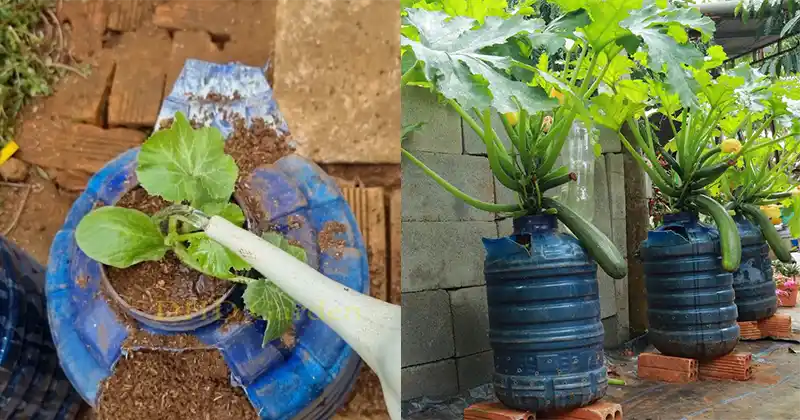Growing zucchini at home can be a rewarding experience, and container gardening offers an excellent solution for those with limited space. In this article, we’ll explore the essential steps and tips for successfully cultivating zucchini in containers, including an unconventional approach involving human medications and supplements.
Container Selection: Choose large containers with a minimum capacity of 5 gallons to accommodate the extensive root system of zucchini plants. Ensure the containers have drainage holes to prevent waterlogging, promoting healthy root development.
Soil Preparation: Use a high-quality potting mix that provides good drainage. Enhance the soil with well-rotted compost to improve fertility and structure. Zucchini plants thrive in slightly acidic to neutral soil conditions.
Planting Zucchini Seeds: Plant zucchini seeds directly in the containers, following the recommended spacing on the seed packet. Ensure the containers are placed in a location that receives at least 6-8 hours of direct sunlight daily.
Watering: Keep the soil consistently moist, but avoid waterlogged conditions. Container plants may require more frequent watering, especially during hot weather. Water when the top inch of soil feels dry.
Fertilizing: For conventional fertilization, choose a balanced, slow-release fertilizer or one specifically formulated for vegetables. Follow the recommended application rates to provide the necessary nutrients for optimal growth.
Unconventional Approach – Human Medications and Supplements: Some gardeners experiment with unconventional methods to promote plant health. While not scientifically proven, here are a few options:
- Aspirin Solution:
- Dissolve one aspirin tablet (325 mg) in a gallon of water.
- Use as a foliar spray or apply it to the soil.
- Some believe aspirin may help plants resist stress and disease.
- Multivitamin Solution:
- Crush multivitamin tablets and mix them with water to create a solution.
- Apply to the soil or use as a foliar spray.
- Multivitamins may provide additional nutrients.
- Calcium Enhancement:
- Crush calcium tablets and mix them into the soil.
- Calcium is essential for plant growth and may help prevent blossom end rot.
Caution: It’s important to note that the use of human medications in gardening is not recommended, and the effectiveness of these methods is uncertain. Consider conducting small-scale tests before applying such unconventional approaches to your entire garden.
Conclusion: Growing zucchini in containers is a practical and enjoyable way to cultivate this versatile vegetable at home. By following these tips, you can create a thriving container garden and experiment with unconventional methods cautiously, keeping in mind the potential risks and uncertainties associated with using human medications in gardening.
